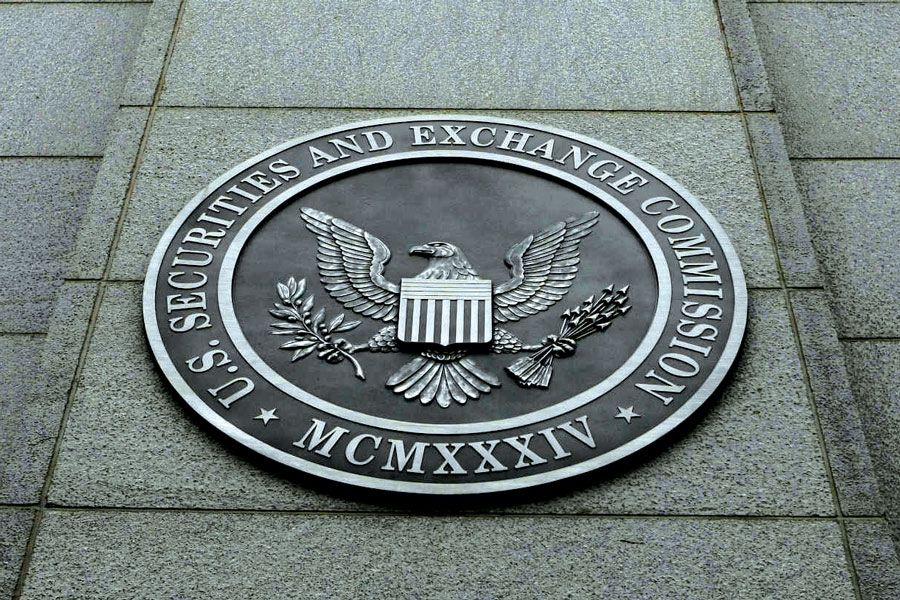SEC Crypto Task Force Meets With Ondo Finance to Discuss Tokenized Securities
25.04.2025 18:30 1 min. read Kosta Gushterov
The U.S. Securities and Exchange Commission’s (SEC) crypto task force, led by Commissioner Hester Peirce, is continuing its behind-the-scenes engagement with digital asset firms as the agency weighs new approaches to crypto regulation.
In a meeting disclosed on April 24, representatives from Ondo Finance and the law firm Davis Polk & Wardwell sat down with SEC officials to discuss key regulatory concerns surrounding tokenized versions of publicly traded U.S. securities.
Focus on Tokenized Securities and Compliance
The conversation reportedly centered on how Ondo Finance could issue and sell wrapped, tokenized securities while remaining compliant with existing financial regulations. Discussions included potential registration requirements, the establishment of a regulatory sandbox, and broader frameworks for digital assets that mimic traditional financial instruments.
This meeting marks another step in the SEC’s evolving approach to crypto oversight. The task force appears increasingly open to dialogue as it evaluates how tokenization can align with U.S. securities law.
Political and Legal Connections Raise Eyebrows
The meeting has drawn added attention due to Ondo Finance’s prior $1 million donation to former President Donald Trump’s inauguration fund. Meanwhile, Davis Polk — one of the firms present — recently announced it would represent Trump’s Truth Social in launching crypto-linked ETFs.
Though the SEC has not commented further on the meeting, the ongoing collaboration signals a potential shift in how the agency may address tokenized investment products amid growing institutional interest in digital finance.
-
1
Key Crypto Events to Watch in the Next Months
20.07.2025 22:00 2 min. read -
2
House Clears Path for Landmark Crypto Bills: Vote Set for Thursday
17.07.2025 9:15 2 min. read -
3
Australia Tests CBDCs in 24 Separate Real-World Finance Use Cases
10.07.2025 19:00 2 min. read -
4
U.S. House Passes Sweeping Clarity and GENIUS Acts
17.07.2025 23:29 1 min. read -
5
Senate Confirms Crypto-Linked Nominee Jonathan Gould to Head OCC
11.07.2025 9:00 2 min. read
Nigeria Signals Greenlight for Stablecoin Innovation Under New Regulatory Vision
Nigeria is taking a decisive step toward embracing stablecoin adoption, as the country’s Securities and Exchange Commission (SEC) outlined its readiness to support digital currency innovation—under clear regulatory conditions.
South Korea Urges Asset Managers to Limit Exposure to Crypto Stock Like Coinbase,MicroStrategy
South Korea’s top financial watchdog has issued informal guidance urging local asset managers to scale back their investments in crypto-related stocks, according to a Korean Herald report.
SEC Reverses Bitwise ETF Approval Just Hours After Greenlight
In a surprising move on Tuesday, the U.S. Securities and Exchange Commission (SEC) initially approved Bitwise’s proposal to convert its cryptocurrency index fund into a full-fledged exchange-traded fund (ETF)—only to halt the decision just hours later.
Senate Republicans Unveil Crypto Market Bill to Expand CLARITY Act
Senators Tim Scott, Cynthia Lummis, Bill Hagerty, and Bernie Moreno (R-OH) have released a discussion draft of a new digital asset market structure bill—framed as the Senate counterpart to the CLARITY Act.
-
1
Key Crypto Events to Watch in the Next Months
20.07.2025 22:00 2 min. read -
2
House Clears Path for Landmark Crypto Bills: Vote Set for Thursday
17.07.2025 9:15 2 min. read -
3
Australia Tests CBDCs in 24 Separate Real-World Finance Use Cases
10.07.2025 19:00 2 min. read -
4
U.S. House Passes Sweeping Clarity and GENIUS Acts
17.07.2025 23:29 1 min. read -
5
Senate Confirms Crypto-Linked Nominee Jonathan Gould to Head OCC
11.07.2025 9:00 2 min. read


